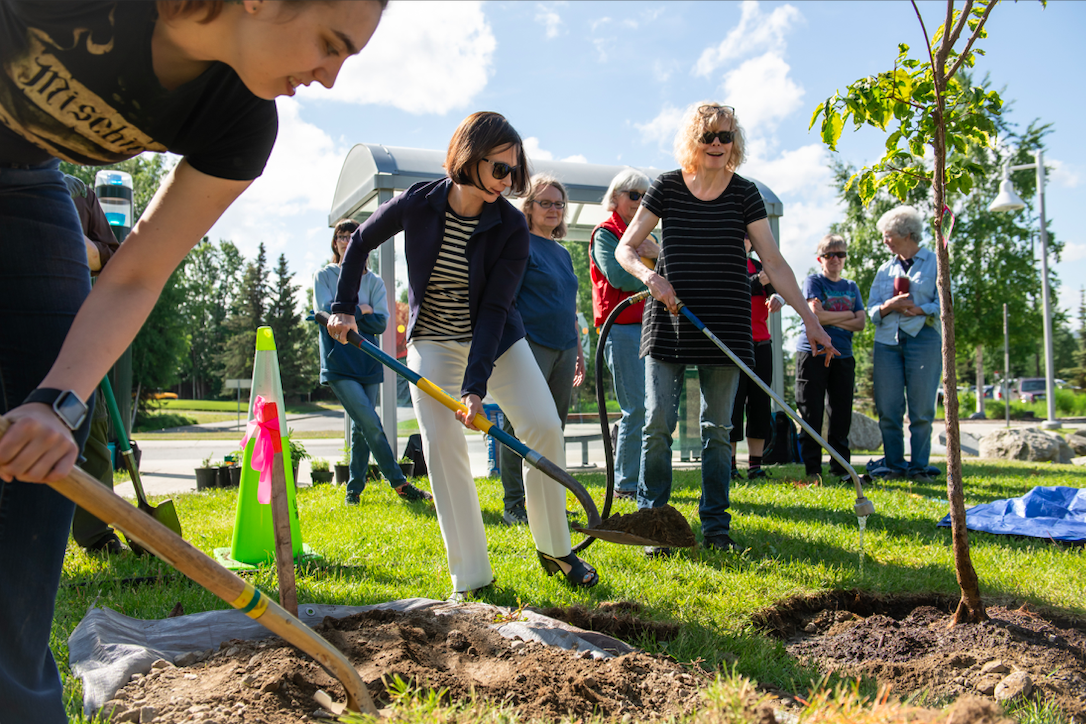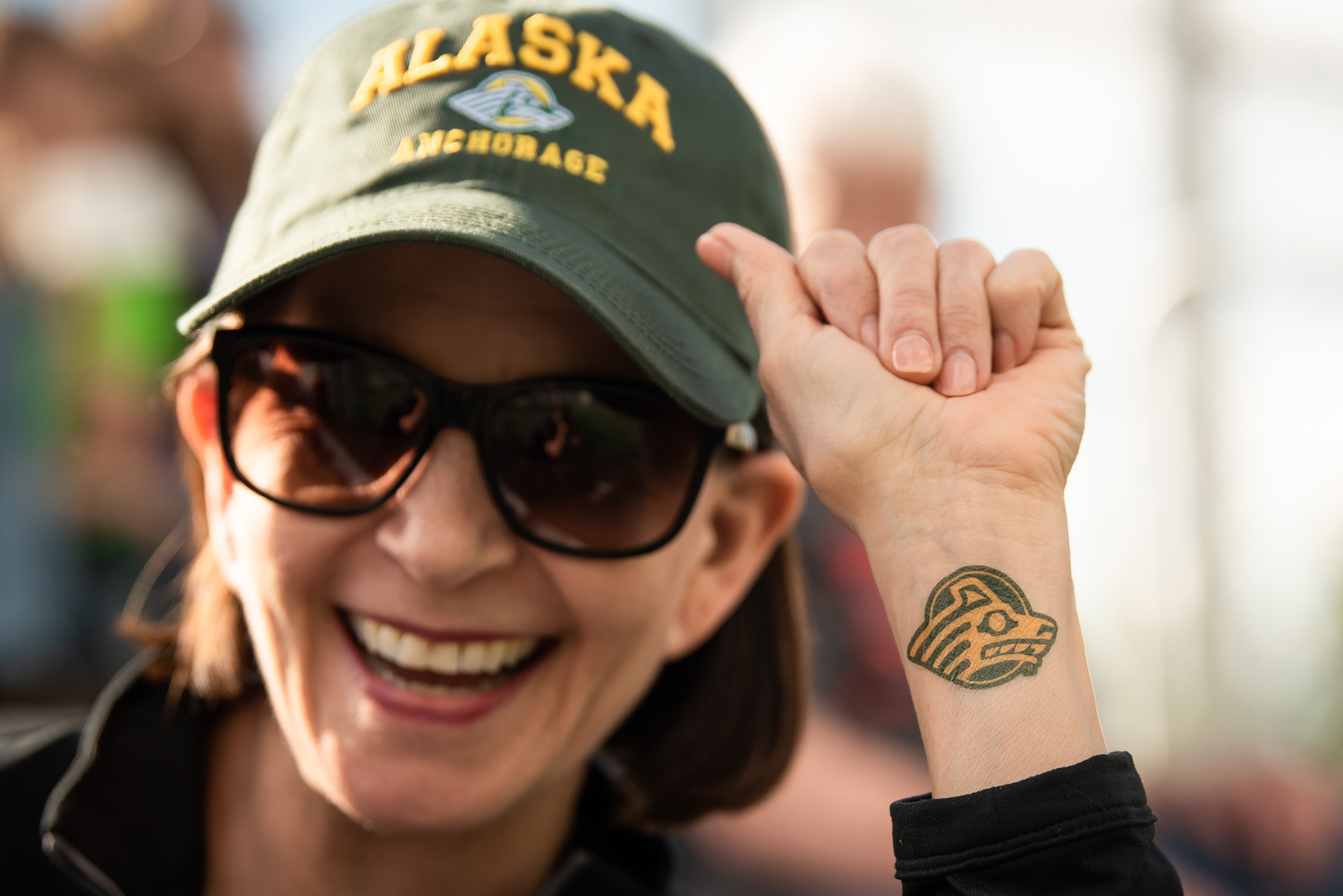UAA M.P.H. alumna leads Anchorage Health Department
by Catalina Myers |

In 2002, after a phone interview with Boys and Girls Club of Alaska (BGC), UAA alumna Natasha Pineda bought a backpack and a pair of boots, booked a ticket out of PDX to Anchorage for what she calls, “a classic Alaska story.” The M.P.H. ’15 grad worked for BGC for a couple of years, ended up returning to Portland before moving to Mexico to live with her dad when she decided it was time to get serious about her career.
“I spent my last $250 on a ticket from Mexico City to Anchorage and have stayed put since then,” said Pineda. She fell in love with a Salvadorian commercial fisherman and settled into life in the Last Frontier. “I was in my late 20s and had not gone to school formerly and I decided, ‘I’m going to go to college, I’m going to get my degree.’”
Pineda earned her undergraduate degree in business administration and management from Alaska Pacific University, but as her career progressed, she pivoted from BGC to focus more on substance misuse and prevention. Through her work on several coalitions in Southcentral focusing on substance misuse, she got hired by the State of Alaska as a program coordinator in the Division of Behavioral Health.
“I was doing that work and thought, ‘What kind of degree do I want to get?’” she said. “I had been interacting a lot with Professor Rhonda Johnson, who at the time was running the M.P.H. program, and decided that this was the program for me. I wanted to professionalize my understanding of public health — an area of obvious interest to me — and health education was a great and important part of my life and what I wanted to do, but as I moved up the process with the state, it was clear I would benefit from a public health program.”
So Pineda did her homework and assessed public health programs in the state and across the country, but landed on UAA’s. The university’s program appealed to her because she had already worked with many of the program's professors in the field and a large portion of the program focused on circumpolar health.
“The program has greatly benefited me not only educationally, but I also had a lot of opportunities to do many projects that were practical and based in the Anchorage community,” she said. “I still use or benefit from these projects, even in my current position. It was an incredibly rich opportunity that I wouldn’t have had if I had taken a course from an out-of-state university.”
Anchorage Health Department
In 2018, Pineda became the director of the Anchorage Health Department (AHD), formerly known as the Anchorage Department of Health and Human Services. One of her first projects was renaming the department and raising awareness of their existence and program offerings within the community.

“We’re a small but mighty health department,” Pineda said. “We have a wide variety of programs and services that we provide here that are not necessarily all traditional public health programs or offerings.”
AHD oversees everything from traditional health offerings like the WIC program and restaurant inspections to ones less commonly operated by health departments nationwide, like the city’s cemeteries and Animal Control. She’s also grateful for the continued connection to UAA through various health commissions and said she frequently collaborates with her former professors on citywide initiatives.
“Before the emergency, we had identified a couple of areas we wanted to focus on and Tobacco 21 was one of the first ones we got into,” said Pineda, who was able to pull the expertise of Gabe Garcia, associate professor of public health in the Department of Health Sciences, and who also serves as a member of the Municipal Health and Human Services Commission. “In his role as a commissioner, he was able to provide great input and helped us inform the Anchorage Assembly as they moved forward a Tobacco 21 policy before a federal one was passed.”
Pineda credits her UAA public health program and education in understanding the importance of policies like Tobacco 21 and is grateful she was able to access university resources so easily to help the city implement the policy.
January 24, 2020
As global and national reports started rolling in on the enormous scale of the COVID-19 pandemic, the Municipality of Anchorage (MOA) acted quickly and Pineda and her team jumped into action. Since late January, she’s been clocking 10-14 hour days, all while trying to balance life at home with a husband and school-age children.
With the current, constantly evolving situation, Pineda said her M.P.H. degree is helping her navigate the COVID-19 pandemic, which in turn has helped her guide city officials through the process of keeping Anchorage safe.
“I can’t imagine trying to navigate this current situation without that foundational understanding,” Pineda said. “It’s transformed our entire world and our community, but I think January 24 was kind of the cardinal day that things changed.”
Pineda said it was a Saturday and that state health officials held a conference call for health officials across the state to hear about and to begin implementing new guidelines regarding COVID-19. She said AHD rapidly shifted course from their usual functions to create and post new information about health recommendations regarding the virus and since January 24, it has been nonstop.
By February, Pineda said all of her staff was putting all of their energy toward handling the COVID-19 crisis. A few days into the new month, MOA opened its emergency crisis center and the entire AHD staff was reassigned to the MOA’s emergency center. She said about 25% of her staff is completely dedicated to the city’s emergency operations center, but that she still has a handful of employees who are still working on core functions to operate important programs like WIC.
“I think the current emergency is the perfect example of why a local health authority matters because all emergencies are local,” said Pineda. She said Anchorage is fortunate that the state can provide infrastructure and support, but the quick changes on the local level were the result of having a boots-on-the-ground local municipal health department. “As a local department, we were able to work directly with the mayor and say, ‘Here’s what we’re seeing, hearing and what’s going on around the country and the world’ and here are our recommendations. Having a local jurisdiction being able to identify the biggest issues and what’s most important here and then be able to advocate for those things is powerful.”
 "UAA M.P.H. alumna leads Anchorage Health Department" is licensed under a Creative Commons Attribution-NonCommercial 4.0 International License.
"UAA M.P.H. alumna leads Anchorage Health Department" is licensed under a Creative Commons Attribution-NonCommercial 4.0 International License.














